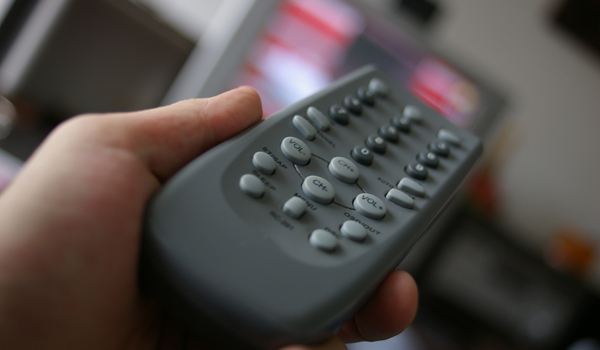TV Harms Kids' Health More than Computer Time

For kids, watching TV appears to be more harmful to their health than sitting at a computer, a new study finds. Kids who watched four or more hours of TV per day were 2.5 times more likely to raise their risk of heart disease and diabetes, by having high blood pressure and a large waist size, compared to kids who spent less than one hour watching TV per day. However, no such link between sitting and these risk factors was found for kids who spent time at a computer. The results held regardless of how much time the kids spent doing physical activity during other times of the day . One possible reason for the results is that relaxing in front of the TV somehow burns fewer calories than sitting at a computer. Another is that people are more likely to engage in unhealthy behaviors, such as between-meal snacking, when watching TV than when sitting at a computer. The new finding adds to a growing body of evidence that show that, while sedentary behavior is bad for you , some types appear to be worse than others. A 2008 study found that TV watching was associated with a higher risk of obesity than computer or video game use in kids. Screen time In the new study, researchers from Queen's University in Ontario, Canada, examined information from about 2,500 children ages 6 to 19 years old. The children's physical activity was measured continuously using accelerometers, which are devices worn by the kids that detect movement. They also had their vital signs measured, and answered questions about their time spent in front the TV and other screens. Interestingly, the study found no overall link between the amount of time spent sitting and the kids' chances of having risk factors for heart disease and diabetes. However, previous studies have linked sedentary behavior to such risk factors in adults. Kids and adults The difference between the new study and those conducted in adults may be that inactivity has a different physiological effect on kids than it does on adults, the researchers said. The researchers noted that to measure the amount of time the kids spent watching TV and using computers, they ask the children or parents directly, and such reports may be mistaken. The findings suggest physical activity needs to be considered separately from inactivity, the researchers said—children should try to increase their physical activity, but also be aware of what they are doing when they are not active. Kids' TV time should also be limited, the researchers said. The study was published on May 4 in the journal BMC Public Health. The researchers issued an announcement about their findings on Thursday (Nov. 17). Pass it on: Sedentary behavior is bad for you, but TV viewing may be particularly deleterious. Follow MyHealthNewsDaily on Twitter @MyHealth_MNHD. Like us on Facebook.
- 6 Ways to Make Sitting Healthier
- 11 Surprising Things That Can Make Us Gain Weight
- Young Couch Potatoes Open Door to Future Heart Disease
Get the world’s most fascinating discoveries delivered straight to your inbox.
 Live Science Plus
Live Science Plus






